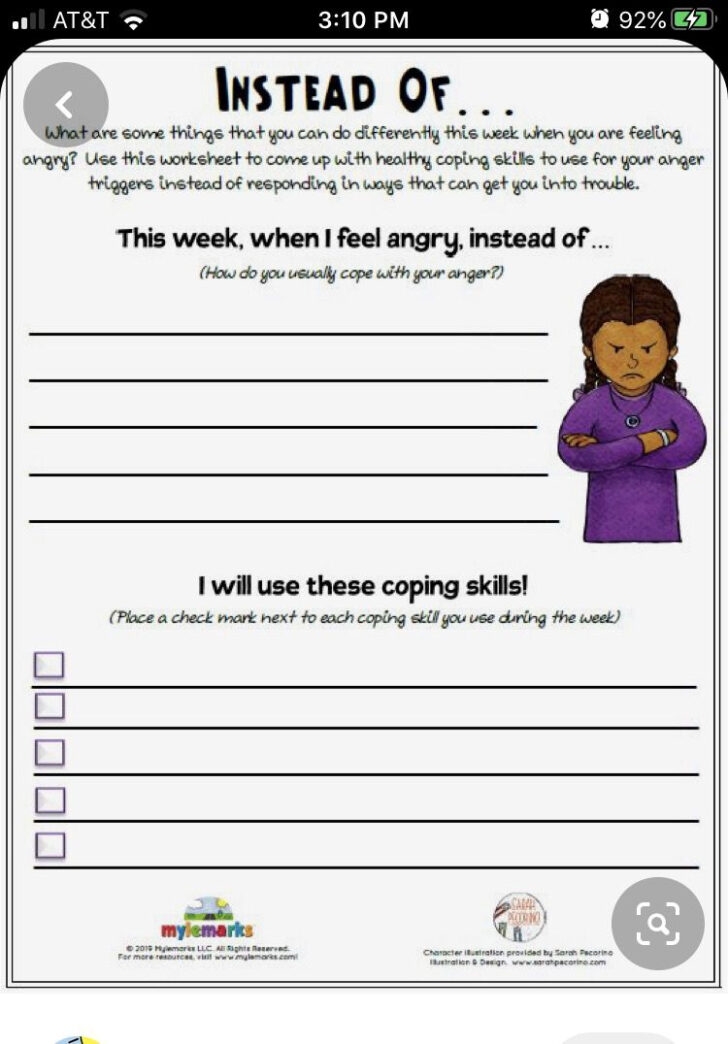Children experience a wide range of emotions as they navigate through life, and anger is a common emotion that can be difficult for them to understand and manage. As parents and educators, it’s important to provide kids with the tools and resources they need to effectively cope with their anger. One helpful tool that can be used is anger worksheets specifically designed for children.
Anger worksheets for kids are a great way to help children recognize and express their feelings of anger in a healthy and constructive manner. These worksheets provide kids with a safe space to explore their emotions, identify triggers for their anger, and learn coping strategies to manage their feelings effectively.
Anger Worksheets for Kids
One type of anger worksheet for kids is a feelings chart, where children can identify and label their emotions, including anger. This can help kids become more aware of their feelings and learn to express them in a positive way. Another type of worksheet is a anger management plan, where kids can outline specific steps they can take when they feel angry, such as taking deep breaths or counting to ten.
Role-playing exercises can also be helpful in teaching children how to respond to anger-provoking situations. By acting out different scenarios with a parent or teacher, kids can practice using calming techniques and problem-solving skills in a safe environment. This can help them feel more confident and prepared to handle real-life situations that may trigger their anger.
Additionally, journaling can be a powerful tool for children to process their emotions and reflect on what makes them angry. Writing down their thoughts and feelings can help kids gain a better understanding of their emotions and identify patterns in their behavior. This self-reflection can be a valuable step in learning how to manage and control their anger more effectively.
Overall, anger worksheets for kids are a valuable resource for helping children develop the skills they need to manage their anger in a healthy way. By providing children with the opportunity to explore their emotions, learn effective coping strategies, and practice positive communication, we can empower them to navigate their emotions with confidence and resilience.
Encouraging children to use anger worksheets can be a proactive way to support their emotional well-being and promote positive behavior. By arming kids with the tools they need to understand and manage their anger, we can help them build valuable life skills that will serve them well into adulthood.
